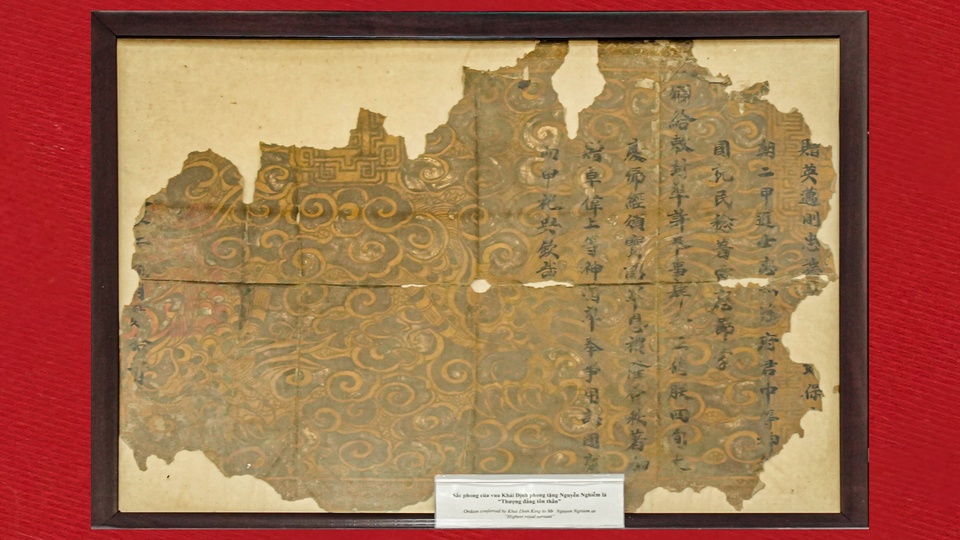
9. The Royal Decree of King Khai Dinh, bestowed on Nguyen Nghiem the title of "Supreme Saint"
1693Ladies and gentlemen!
Nguyen Nghiem, a 6th-generation member of the Nguyen clan of Tien Dien and father of the great poet Nguyen Du, was born in 1708 and died in 1776. At the age of 16, he passed the Huong Cong exam and then passed the Second Class Doctorate (Hoang Giap - 4th place) in the Imperial Examination of the year of Tan Hoi (1731) at the age of 24. Nguyen Nghiem was the one who promoted the path of education and fame for many notable members of the Nguyen clan of Tien Dien.
Nguyen Nghiem's career path was rather smooth, starting with him holding the position of a court mandarin until he was promoted to Tham Tung (Grand Chancellor). From being a mandarin in the Le Dynasty’s court to simultaneously holding the position of Thuong Thu in the ministry (under the control of the Le Emperor) and Tham Tung in the Trinh Lord's palace, he harmoniously navigated the combined stature of three generations of Le Emperors (Thuan Tong, Y Tong, and Hien Tong) with the real power of the three Trinh Lords (Trinh Giang, Trinh Doanh, and Trinh Sam) to successfully carry out his administrative duties.
In addition to his exemplary qualities as a mandarin, Nguyen Nghiem was also a great historian. He is often listed among the few most famous historians of the Vietnamese Middle Ages, from the times of Su Hy Nhan (another famous historian) to the end of the 18th century and the beginning of the 19th century.
He was bestowed the title of "Supreme Saint" by Emperor Khai Dinh. The decree announcing this decision was written on Do paper (a type of paper made from the bast of the Rhamnoneuron tree), with a dragon motif winding in the above clouds.
This decree of sainthood is a document that conveys the emperor's orders to confer the title of Saint on those who have made great contributions to the country. Decreed saints would be worshiped at communal houses, pagodas, temples, shrines, etc. This is one of the most valuable antiques displayed at the Nguyen Du Memorial Site.
Ladies and gentlemen! Not only was Nguyen Nghiem respected by the emperor, he was also loved by the civil and military mandarins in the court because of his closeness, simplicity, and immense care for everyone. The affection that other court mandarins had for Nguyen Nghiem is shown through the special parallel sentences that you will see momentarily.




